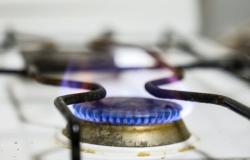Monday 10.6.2024
/
Last update 6:22
1st year students from the “Nuestra Señora del Calvario” School participate in a solidarity environmental project that seeks to raise awareness about the importance of recycling used vegetable oil (AVU), one of the most serious factors of water pollution and other environmental problems and urban. The kids researched and trained on the topic, and then started the “Eco Oil” campaign, both among school students and in their nearby community.
Last week, the students were in Constituciónntes Square discussing and informing residents about this problem. They also distributed clean plastic bottles and invited them to place the cooking oil they use in that container, and then take it to the collection point that will be fixed in the North Market, entrance on Urquiza Street.
The AVU generates water pollution, since it is capable of creating a layer on the surface of the water that makes the passage of oxygen difficult and can kill living beings in rivers, canals or seas. This layer is difficult to remove. The students found out in their research that the Argentine National Institute of Industrial Technology (INTI) indicates that approximately one liter of AVU can contaminate up to a thousand liters of water, which represents the amount of water consumed by an average person for 11.5 years.
“We hope that neighbors become aware of this problem and understand that with an action as simple as storing oil in a bottle, we can collaborate with the environment,” said students Ambar Deep, Sabrina Benay, Wendy Coria Costa and Miguel Paulón, representing of their classmates from the 1st year courses A and B of Calvario who carry out the initiative.
Teacher Florencia Campi, in charge of the project, commented that going out to Plaza Constituciónntes to invite the families of the neighborhood, “was a very positive activity.” As he said, “the boys were happy because they were able to tell the impact of the oil to those who were unaware of the subject. They also met neighbors who were already collecting the oil in bottles and did not know what to do with it. So it was a very pleasant.”
In the city of Santa Fe, recycling used oil is not such a widespread practice. “We are carrying out this campaign, since the majority throw the oil down the drain and it generates a series of problems such as clogging of the pipes, problems in the soil or impeding the growth of plants. If it reaches the river, a liter of oil contaminates a thousand liters of water,” the students explained.
Going out to the Constituciónntes neighborhood to talk to the neighbors, provide them with information and ask for their collaboration, is part of the “Eco Oil” campaign. Credit: Flavio Raina
Project based learning
The teacher told how the interest of the boys and girls arose in relation to the pollution produced by used vegetable oil: “The proposal was posed to the students based on a question-problem about the final destination of used cooking oil. It is a PBL methodology, project-based learning. The children, based on this problem, divided into groups and began to organize a search for information, both on different Internet pages and also from surveys in their families, among neighbors. and gastronomic businesses”.
The students also had training with a sanitation services company in the south of Santa Fe. “All this motivated them to think about a final destination for the oil that was a little more environmentally friendly and that it would be feasible to do so in our laboratories. And they They decided to recycle it and transform it into candles and soaps. Then they started a campaign, they thought of a logo for the name, they voted for the best logo and they began to share this project with all the school classes. There was also the proposal to do it in school. the families of the neighborhood and that was when we thought of a green point and we contacted Mercado Norte, through the Municipality,” explained the professor of Biology and Space for the Development of Ideology.
Going out to the Constituciónntes neighborhood to talk to the neighbors, provide them with information and ask for their collaboration, is part of the “Eco Oil” campaign. Credit: Flavio Raiva
Recycle
The students said that the AVU can be recycled and converted “into cleaning products such as soaps and detergents with great degreasing and cleaning power, and these products can be used for a social purpose: helping people without resources,” the boys said. It can also be used to make candles and biofuels.
“They are very excited about the proposal,” said the teacher. “In this period of two months, June and July, as much oil as possible will be collected and, after the holidays, they will begin to recycle it. They are already looking for information on how to do it.” , and they are going to decide in groups what essential oil to use, what natural coloring to use, what containers, always thinking that the entire production process is with the three Rs.”
Once the project is finished, the idea is to donate what is produced to families who need it, for example, in Villa del Parque, a neighborhood with which the educational institution has ties.
The green point will be installed in the North Market so that people can bring bottles with used oil. Credit: Flavio Raina
When used oil is thrown into sewers and on the ground, it prevents proper oxygenation of the soil, affecting life in it. For example, it makes the germination of seeds difficult and it keeps fauna away from the area (worms). It also makes it difficult for water to drain in those soils. When used oil is thrown down the kitchen or bathroom pipe, the first problem it generates is the clogging of the pipes. But then the problem is greater, because it reaches the rivers causing an increase in organic matter. This triggers an explosive growth of microorganisms that cause an alteration in aquatic life. The oil accumulated in the water can also generate a layer above the river level that prevents sunlight from entering.






